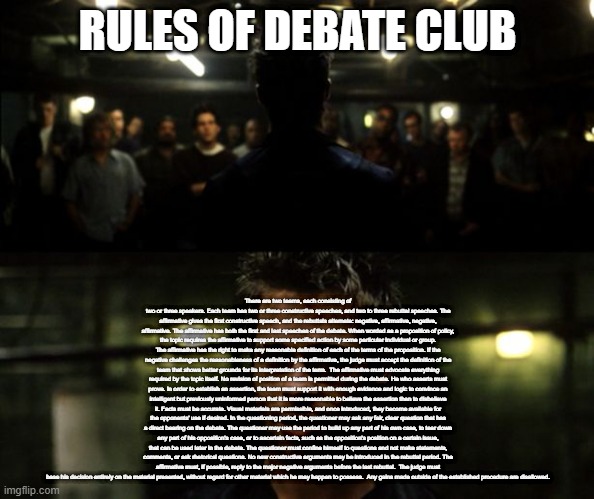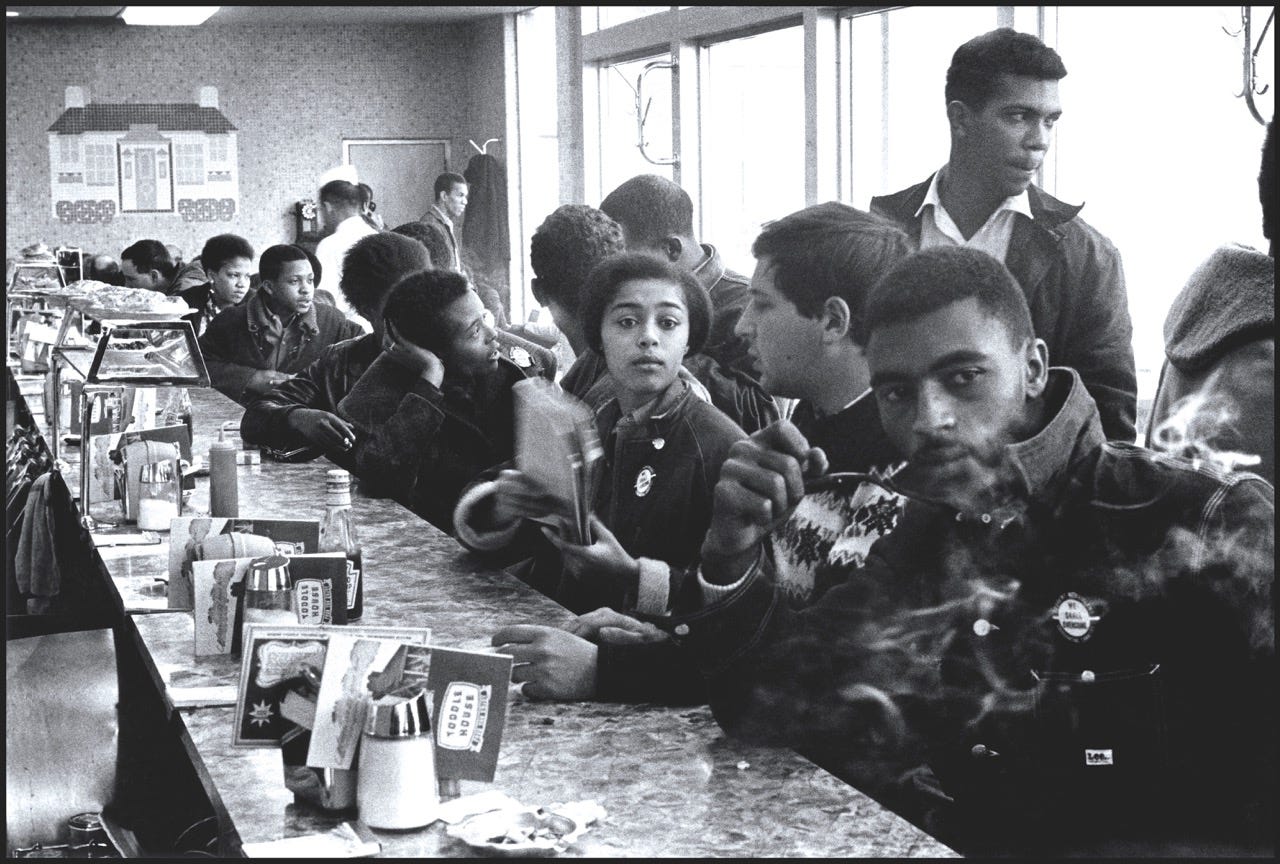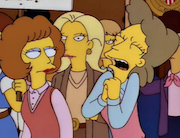|
Welcome to Weekend Debate Club, which is a lot less formal than that name might suggest. Let's talk about the Civil Rights Movement. This thread is a bit of an experiment. We'd like to invite goons to discuss and debate a historical topic or event. The goal is to encourage in-depth engagement with important topics in addition to current events which is most of the traffic in this forum. Choosing a historical subject means there's been much ink spilled on it, which allows for some deeper discussion and analysis. If it goes well, this might be a semi-regular event.  Thread rules: -All standard D&D rules apply. Do not attack other posters. Make quality arguments and support them with reasoning and/or sources. Don't be repetitive or boring. -Avoid white-noise and shitposting. -Try to remain on topic. While you do not have to address the thread prompt exactly, make sure your posts are relevant to the broader topic. -Forum bans remain in effect here. -Thread will remain open until midnight on Jan 17th. If this is somewhat successful, we might do it again in a few weeks. Winners and prizes To encourage participation, we'll pick a few winners at random and award some small prizes. If this takes off, we could give out larger prizes such as gang tags and I have tentative approval to maybe in the future allow the winner to give a 3-day probe to the participating opponent(s) of their choice. But for now here's my plan: -Make a list of all posters who contribute a good, effortful, or funny post. Feed it into a list randomizer to pick a "winner." I can't think of a fair way to choose winners other than by random right now, if you have ideas for the future I'd welcome those. -Top winner gets to choose the topic/prompt for the next round of Weekend Debate Club. Koos Group will have veto over their choice. This should ideally be something before about the year 2010 to keep it somewhat separate from Current Events. Topic and prompt In honor of MLK Day weekend, the topic is Civil Rights movements of about the 1950s-1970s, globally. During this time period, civil rights movements found grew in strength and found some successes in the United States and many other places around the globe. Why then? What specific historic and contemporary factors were most important for the growth of each of these movements in this time period? While you are not limited to addressing this exact prompt and contemporary politics are of course very relevant, please try to keep the conversation situated around this historical time period.  (Sit-in protest in Atlanta, 1963)
|
|
|
|

|
| # ? May 7, 2024 07:08 |
|
one of the reasons that our history plays down, for obvious reasons, is the profound social lubricating factor of USSR financial assistance. the right wing would have screamed about how civil rights was a commie plot regardless, of course, but there was a grain of truth to the accusation. a foreign superpower offering support to your movement, tacit or otherwise, is a fantastic way to get on your feet as an organization. from a more bird's eye view, the presence of the USSR as a rival superpower meant that the Free Market of Ideas beloved by libertarians actually kind of functioned for once. western powers were obliged (at least in the imperial core) to treat undesired populations with more justice and equity than they might have otherwise preferred, because there was a rival offer on the table for those people. to bring it around to a modern civil rights case we're all more familiar with, Israel was less openly murderous re: Palestinians back when the potential arrival of Soviet armored columns was a part of the strategic calculus.
|
|
|
|
The Cold War allowed a lot of stuff, from universal education to the highway system to the Space Race. Dunno if that means you need to hand it to the USSR for those things. I'd rather point to the agency of the protesters. Might be the last time in US history protest brought about real social change (Vietnam was DoA the moment the draft swept of middle class kids). Society has adapted to that now, and protest is still useful but more from a solidarity angle than as a change agent itself. And that bastard Lyndon Johnson going from supervillain to anti-hero. That was important. The US government could easily have made worse choices, Cold War or no. But it didn't.
|
|
|
|
oh, make no mistake, the soviet union as it actually existed was FAR lesser (morally, economically, militarily, basically pick an arena, they underperformed) than the threat they were propagandized to be. but the mere fact of their existence took a host of social movements in the West from 'impossible dream' to 'reasonable proposal that must be seriously considered, for fear of what happens if we don't.'
|
|
|
|
Yeowch!!! My Balls!!! posted:oh, make no mistake, the soviet union as it actually existed was FAR lesser (morally, economically, militarily, basically pick an arena, they underperformed) than the threat they were propagandized to be. but the mere fact of their existence took a host of social movements in the West from 'impossible dream' to 'reasonable proposal that must be seriously considered, for fear of what happens if we don't.' I agree that the cold war was necessary for a lot of stuff that has become the fabric of modern America, both good and bad. But that doesn't tell us much about the civil rights movement itself, which was also necessary, and which actually had intent to bring about the change it did.
|
|
|
|
The presence of the USSR, and the Cold War environment more broadly, was also important for the US Civil Rights movement for a different reason besides moral or material support. Namely, the 50s and 60s were the height of decolonization, especially in Africa, and US leaders were deeply afraid that continuing segregation and discrimination against Black people in the US was alienating to the peoples and leaders of decolonizing countries. They worried that continuing images of a racially segregated society and continuing experiences of discrimination against people of colour in the US would drive decolonizing countries into the arms of the USSR, which had its own problems with race but which professed an anti-racist and anti-imperialist ideology. Put bluntly, there was a pretty widespread thought at the time that if decolonizing countries were going to be forced to choose between a superpower that proudly professed to fight all forms of racism and a superpower that claimed to stand for democracy and freedom but was openly white supremacist in its domestic affairs, then they would obviously choose the latter. The federal government, even before the 60s, chose to support civil rights in part because of the Cold War context. When the Justice Department filed an amicus brief in Brown v Board of Education, it included lines specifically pointing this out: "the existence of discrimination against minority groups in the United States has an adverse effect upon our relations with other countries. Racial discrimination furnishes grist for the Communist propaganda mills, and it raises doubts even among friendly nations as to the intensity of our devotion to the democratic faith." When Brown was decided, the US treated it as a propaganda coup to disprove Soviet narratives about the US as a fundamentally unequal place and democracy as a smokescreen for white supremacy, even as communist observers continued to point out that despite Brown, segregation remained a fact of life in many parts of the US. Leaders of decolonized countries visiting the US still found themselves discriminated against if they went to the wrong hotel or restaurant, for example. Simply put, the Cold War context allowed civil rights leaders and US officials to reframe moderate civil rights advances as beneficial for the fight against communism, because the existence of segregation threatened the US's claim to moral leadership of the decolonizing world. Unsurprisingly, civil rights movements often attracted people who wanted more radical reforms - there were plenty of socialists in the early NAACP, and into the 60s and 70s Black Americans continued looking to socialism, whether their own domestic forms or direct ties to the USSR, China, etc., as an emancipatory prospect. Also unsurprisingly, opponents of civil rights often branded racial justice a communist plot to fight against it, which was easy to do because communist organizations like the CPUSA had a history of fighting for racial justice. You only have to look at the signs on display at the Little Rock protests to see "race mixing is communism" was a very common message uniting these two conservative movements. The Cold War context allowed for a dual push on this front, essentially an alliance between moderates within the federal government and the Civil Rights Movement. Civil rights organizations purged their left wing to prove their anticommunist bona fides, to show that advancing the cause of racial justice (in steps more incremental than the purged radicals had wanted) went hand in hand with fighting communism and that they were on the American side of the Cold War, and in turn the federal government supported moderate civil rights advances because it let them undercut one of communism's most influential claims to ideological superiority. Obviously this isn't the whole story of civil rights and there were tons of domestic factors in play as well, but there's a strong argument to be made that the Cold War context and especially the competition to attract decolonizing countries was part of what finally broke the deadlock in the 50s and 60s.
|
|
|
|
I am amazed I have to ask this because it feels like I should know it already, but is there a book that covers US intel activity in and around the civil rights movement in the US in the same vein as The Jakarta Method? Most of it has to be declassified by now
|
|
|
|
One thing I wanted to point out is simple demographics. Especially in the US, there was the baby boom following WW2 and an era of significant prosperity in the US. IMO part of the reason for the successes of the US Civil Rights movement in the 60s (or so) is you've got a large number of young, well-educated people coming of age. Of course many leaders were much older, but there was a mass of youth to participate in marches, sit-ins, and other demonstrations. I have some data on educational attainment I'll type up a bit later this evening to support this but that's one element I'd throw in the conversation-- there's a huge number of young, educated people coming of age in the 1960s to participate in social movements. edit: in the US, to clarify. The baby boom didn't happen everywhere and I'm not at all knowledgeable about movements abroad though those would be cool to talk about if there's anyone willing/able to share. Fritz the Horse fucked around with this message at 23:26 on Jan 15, 2022 |
|
|
|
It's also important to remember the DECADES of civil rights activism that preceded the Civil Rights Era. Black WWI veterans and the Red Summer, the 'New Negro' movement, the Double V campaign - this was the foundational work that, when segregation suddenly became a national embarrassment instead of a regional quirk, Black activists were ready.
|
|
|
|
I think it's also important to remember the effect of WWII on the Civil Rights movements in the US. For instance, looking at black civil rights, in June, 1941, as the US was gearing up for war, the NAACP had its annual meeting in Houston, with the theme of the annual meeting being "The Negro and National Defense", and there had been talk of a massive Civil Rights March on Washington DC, starting on July 1, and then culminating on Independence Day, and in fact A. Philip Randolph, the President of the Brotherhood of Sleeping Car Porters as well as some other black political figures met with members of FDR's cabinet and the First Lady, saying that, unless there were laws preventing discrimination in the defense industry, he could put "ten, twenty, fifty thousand Negroes on the White House lawn". Just after that, FDR issued Executive Order 8802, which banned discrimination in hiring by the Federal Government and defense contractors, and set up the Fair Employment Practice Committee to respond to complaints of discrimination. (Randolph was also one of the big forces behind desegregating the army, which was finally done in 1948. This next story isn't really related, except for the role of Executive Order 8802 and the FEPC, but I want to mention the desegregation of Philadelphia's mass transit and the Philadelphia Transit Strike of 1944. In 1944, the Philadelphia Transit Company, which was the private company that ran Philadelphia's busses and trollies, changed their policies. Prior to that, black people weren't allowed to hold anything other than menial positions....they couldn't become drivers, for instance. Starting in 1943, the FEPC and the federal government as a whole started pressuring the PTC to change its policies to eliminated discriminatory hiring and promotion practices. One of the biggest supporters of the discriminatory policies of the PTC was the Philadelphia Rapid Transit Employees Union (PRTEU), which had close ties to the PTC. In March of 1944, the transit workers, in a really heavily contested vote, changed their affiliation from PRTEU to the Transport Workers Union, which was part of the CIO. The TWU then went on to enter into new contract negotiations with the PTC, because the contract expired in April. The problem was, even though the TWU was the new union, a lot of the employees were old PRTEU loyalists. Meanwhile, the PTC kept putting the federal government off, saying they couldn't change hiring practices until the new contract was signed,. So then in July, the Federal War Manpower Commission officially announced that the PTC was in violation of the anti-discrimination policy, and the PTC gave in, announced at the beginning of the month that they'd comply, and on July 27th, promoted eight black employees to trolley car operators, saying they'd begin their training August 1st. Meanwhile, though, the NAACP found out that a lot of the old PRTEU people were holding meetings on company property and threatening to strike if the company went ahead with it. The NAACP informed the PTC president, but he didn't do anything. So then, August 1, employees started calling in sick. By noon, 4500 employees weren't working and all the transit vehicles were idle. The local NAACP let the national organization know, who told the Federal government. (The strike, btw, had a devastating effect on war production. That first day, army supply production in the city was cut in half and naval supply production cut by 70%.) Eventually, after about a week, the strike was settled by the army coming in, but this led to a permanent change in Philadelphia public transit hiring. Neither of these really fit the topic of Civil Rights movements between 1950-70, but I wouldn't be surprised if you saw a lot of army veterans involved in a big way in the Civil Rights movements, but I defer to someone who knows more.
|
|
|
|
Fighting Trousers posted:It's also important to remember the DECADES of civil rights activism that preceded the Civil Rights Era. Black WWI veterans and the Red Summer, the 'New Negro' movement, the Double V campaign - this was the foundational work that, when segregation suddenly became a national embarrassment instead of a regional quirk, Black activists were ready. "Why should I shed my blood for Roosevelt’s America, for Cotton Ed Smith and Senator Bilbo, for the whole Jim Crow, negro-hating South, for the low-paid, dirty jobs for which negroes have to fight, for the few dollars of relief and the insults, discrimination, police brutality, and perpetual poverty to which negroes are condemned even in the more liberal North?"-CLR James
|
|
|
|
So yesterday, I mentioned 1941's threatened March on Washington and how it led to the passage of Executive Order 8802, banning employment discrimination among defense contractors. Now, lets talk about another March on Washington (which is probably not the one you're thinking about). In 1954, the Supreme Court released a decision in Brown vs The Board of Education of Topeka (actually 5 different cases consolidated), saying that school segregation was unconstitutional and ordering school districts to integrate "with all deliberate speed." Unfortunately, a lot of segregated school districts read "for all deliberate speed" to mean "not at all", and the federal government didn't really do much at that point to force integration. So, in 1957, to mark the three year anniversary of the decision, a bunch of black civil rights leaders, most notably A Phillip Randolph, who (as you remember from the last post) had threatened the 1941 march and was one of the founders of the Leadership Conference for Civil Rights, as well as Bayard Rustin and Ella Baker of the new Southern Leadership Conference (soon to be renamed the Southern Christian Leadership Conference), decided to plan a march on Washington to pressure the Eisenhower administration Baker had been a long time organizer with the NAACP, and Rustin was a Socialist organizer, had worked with Randolph had organized the first Freedom Ride, was a leader of the pacifist War Resister's League, and did more other stuff than you can shake a stick at. They immediately ran into some opposition from Adam Clayton Powell. Powell was a representative from New York and one of two black Congressmen. He was a Democrat, but in 1956, he endorsed Eisenhower, feeling that the Democrats were too weak on black civil rights. He was afraid that the protest would be seen as a criticism of Eisenhower's inaction (which it was), but in order to avoid offending Powell, the organizers recast it as a prayer vigil, and it got the name "The Prayer Pilgrimage for Freedom". It took place on May 17th, 1957, as a three hour demonstration in front of the Lincoln Memorial. In addition to the groups I mentioned, it was backed by the NAACP and the United Auto Workers, who's president, Walter Reuther, was a big supporter of black civil rights. About 25,000 people showed up, and it was, at the time, the largest demonstration for civil rights. It's probably most remembered today, though, because the final speaker of the afternoon was a minister, the pastor of Montgomery Alabama's Dexter Street Baptist Church, named Martin Luther King, Jr. His speech, "Give us the Ballot", calling for the passage of a Voting Rights Bill, brought him to national attention for the first time. I'd like to be able to say that the Prayer Pilgrimage was such a success, it led to an immediate end to opposition to school integration, but that's not true, but it was a step forward in bringing the issue to the public's attention.
|
|
|
|
Here's the data on educational attainment I was going to post the other day: https://nces.ed.gov/pubs93/93442.pdf Median years of schooling completed for the four demographic groups covered (all people aged 25 and above), change from 1940 to 1964: White males - 8.7 to 11.9 White females - 8.8 to 12.0 Black and other males - 5.4 to 8.7 Black and other females - 6.1 to 9.1 There's a ton of other educational data on their, overall school enrollment, college completion etc. Starting page 21 of the PDF. I'll close the thread at midnight if anyone else wants to participate. Thanks to those that have so far!
|
|
|
|
For what it's worth and just speaking from the peanut gallery I thought this was a cool, interesting and informative thread.
|
|
|
|

|
| # ? May 7, 2024 07:08 |
|
If you've posted or viewed this thread: a sincere thanks! This was an experiment. I sent Koos Group a list of the non-mod users that signifcantly participated and had Koos stick them in a list randomizer https://www.random.org/lists/ Here is the result for "winners:" quote:Epicurius Epicurius may choose the topic for the next topical "debate club" thread in addition to an avatar/text change if they want. I will leave this thread open for a few more days for feedback. IMO, I think it would be helpful to pick a topic closer to the lived memories of our posters. I also think we should advertise future iterations of this thread in advance and run it longer. What do you think of having a semi-weekly special topics thread to discuss/debate important issues of US and international politics, with prizes for participation? Please let us know.
|
|
|












